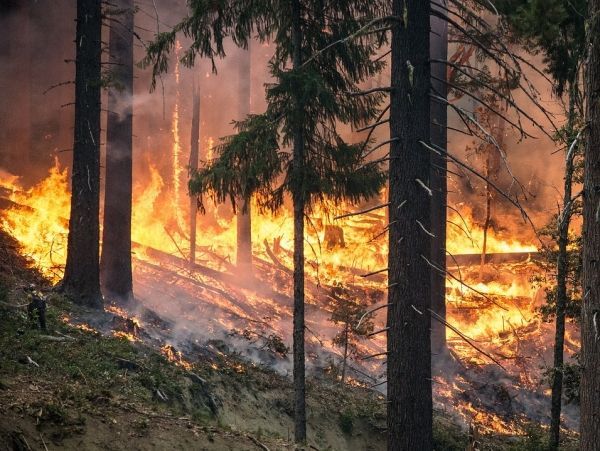In California, the state with more building destruction by wildfire than all of the other states combined, new research by a U.S. Department of Agriculture Forest Service scientist and University of Wisconsin-Madison partners found something surprising. Over nearly three decades, half of all buildings destroyed by wildfire in California were located in an area that is described as having less of the grasses, bushes and trees that are thought to fuel fire in the wildland-urban interface, or WUI.
The study by H. Anu Kramer with Forest Service scientist Miranda Mockrin and colleagues, “High wildfire damage in interface communities in California,” notes that a portion of the WUI defined as "interface" and characterized by having more homes but relatively little wildland vegetation experienced half of the building losses due to wildfire but composed only 2 percent of the total area burned by the wildfires assessed in the study. The study was recently published in the International Journal of Wildland Fire and is available at: https://www.nrs.fs.fed.us/pubs/58348
California’s expansion of housing within and adjacent to wildland vegetation is not unique; the most recent assessment shows that the WUI now includes about one-third of homes in the United States. As wildfire management has become more complex, costly and dangerous, defining what constitutes WUI and defining more specific types of WUI has become more important as local communities strive to apply resources and policy-decisions where they will be most effective in saving lives and property.
Read more at USDA Forest Service - Northern Research Station
Photo Credit: skeeze via Pixabay


